.
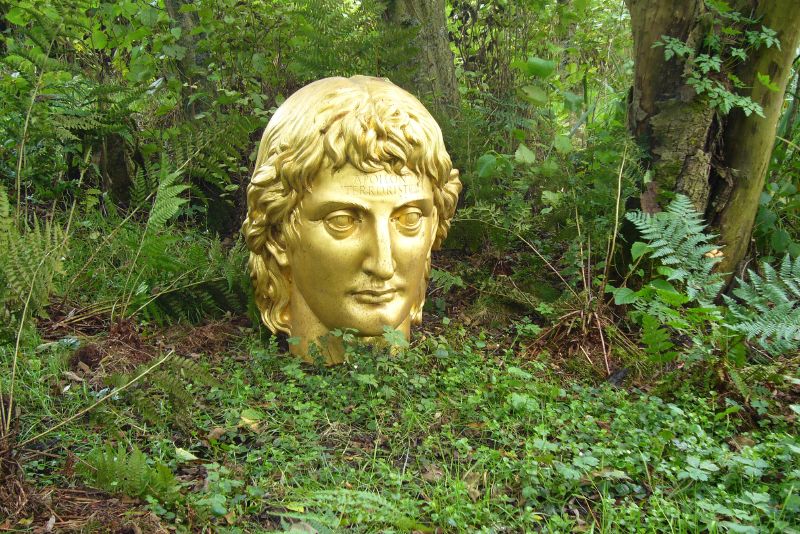
Apollon Terroriste: Ian Hamilton Finlay (1925-2006), in Little Sparta Sculpture Garden, Dunsyre, Pentland Hills, Lanarkshire: photo by yellow book, 2 September 2007
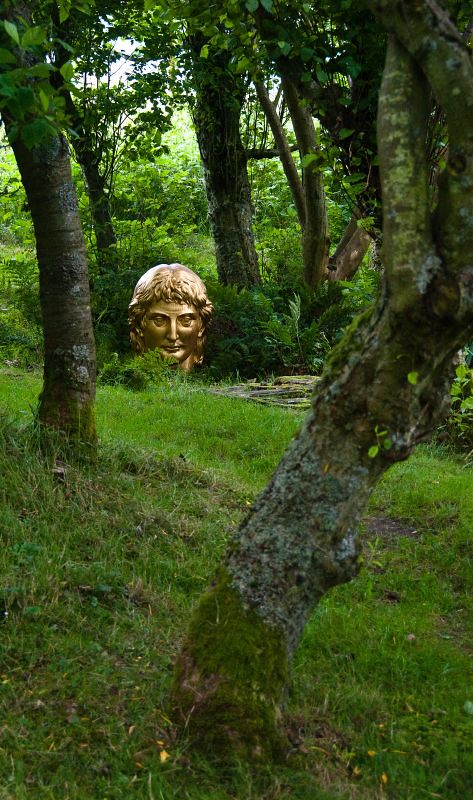
Apollon Terroriste: Ian Hamilton Finlay, in Little Sparta Sculpture Garden, Dunsyre, Pentland Hills, Lanarkshire: photo by photoeali, 28 July 2010
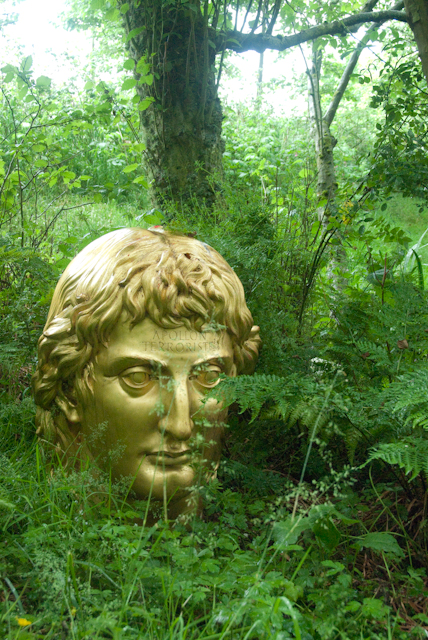
Apollon Terroriste: Ian Hamilton Finlay, in Little Sparta Sculpture Garden, Dunsyre, Pentland Hills, Lanarkshire: photo by photoeali, 3 July 2009
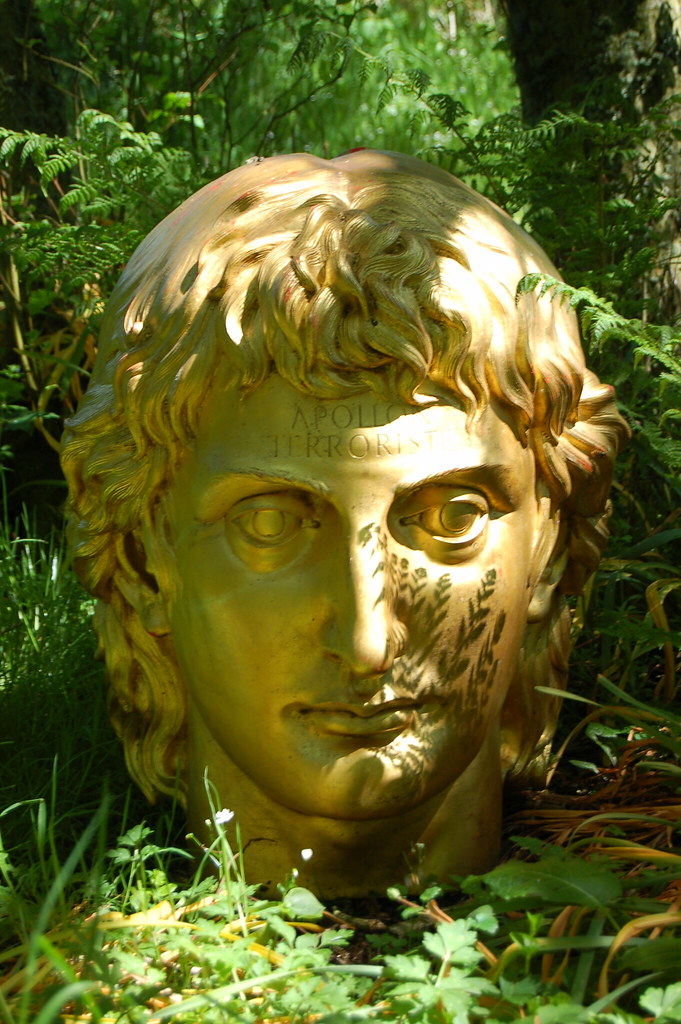
Apollon Terroriste: Ian Hamilton Finlay, in Little Sparta Sculpture Garden, Dunsyre, Pentland Hills, Lanarkshire: photo by onceawildchild, 31 May 2009
It is not true
that the blade was terrible:
it was Terrible.
_________
In the first chapters
of the Revolution
when the ribbons
were still on the haycocks...
_________
You cannot step
into the same Revolution
twice.
_________
"Who are these men
who have no streets
named after them?"
-- French person of 1987, on
The Committee of Public Safety, 1794.
_______
The French Revolution
was something other
than the French nation
on the psychoanalyst's couch.
________
Three Parties
in The Convention:
The Mountain, The Plain,
The Ravine.
_______
In the Picturesque landscape
of the Revolution
the wildest of the banditti
were all ex-lawyers.
_______
For the best of the Jacobins
the Revolution was intended
as a pastoral whose
Virgil was Rousseau.
_______
Revolutions conceived in the fields
are very different from
Revolutions conceived in the cellar.
Ian Hamilton Finlay: texts from Revolutionary Pursuits (1987)
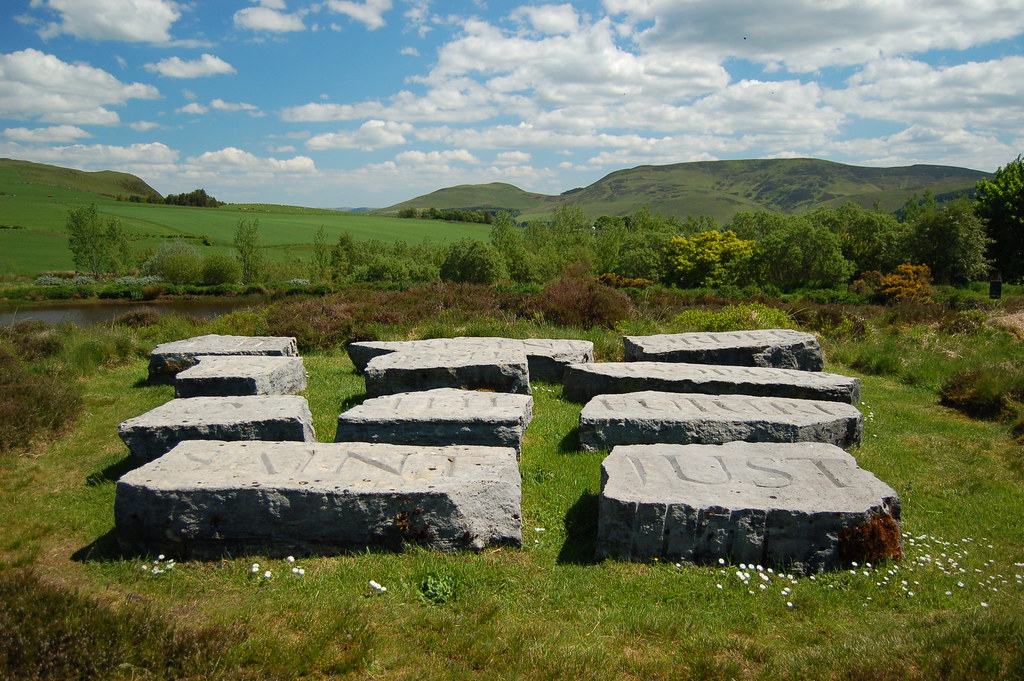
The present order is the disorder of the future -- Saint-Just: Ian Hamilton Finlay, in Ian Hamilton Finlay and Sue Finlay, Little Sparta Sculpture Garden, Dunsyre, Pentland Hills, Lanarkshire: photo by onceawildchild, 31 May 2009

The present order is the disorder of the future -- Saint-Just (with view on the Pentland Hills from the upper reaches of Ian Hamilton Finlay's garden at Little Sparta): Ian Hamilton Finlay, in Ian Hamilton Finlay and Sue Finlay, Little Sparta Sculpture Garden, Dunsyre, Pentland Hills, Lanarkshire: photo by Ergonomik, 21 August 2009
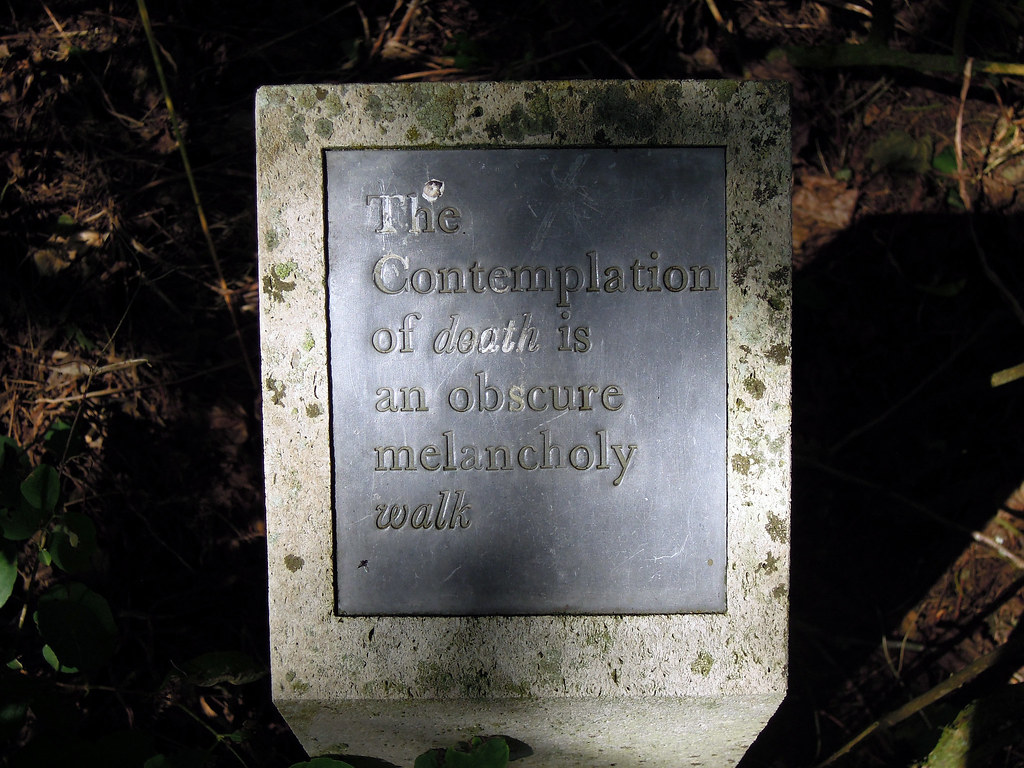
Ian Hamilton Finlay: Plaque 1, Little Sparta: photo by Flora Laura Hammond, 3 July 2011
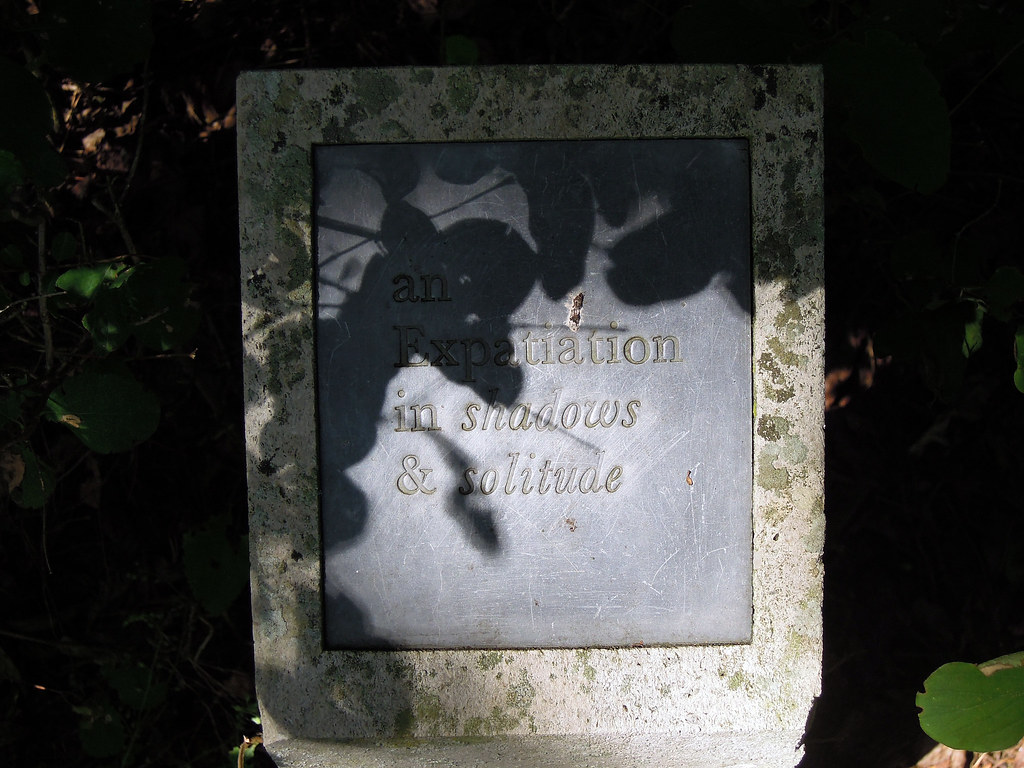
Ian Hamilton Finlay: Plaque 2, Little Sparta: photo by Flora Laura Hammond, 3 July 2011
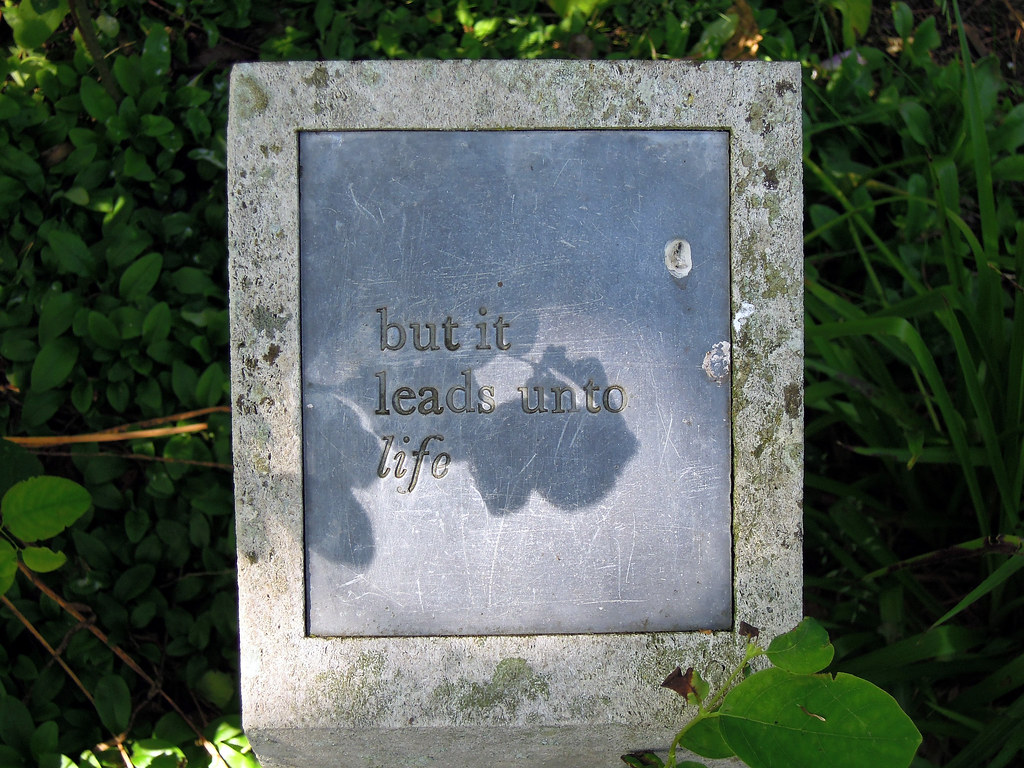
Ian Hamilton Finlay: Plaque 3, Little Sparta: photo by Flora Laura Hammond, 3 July 2011
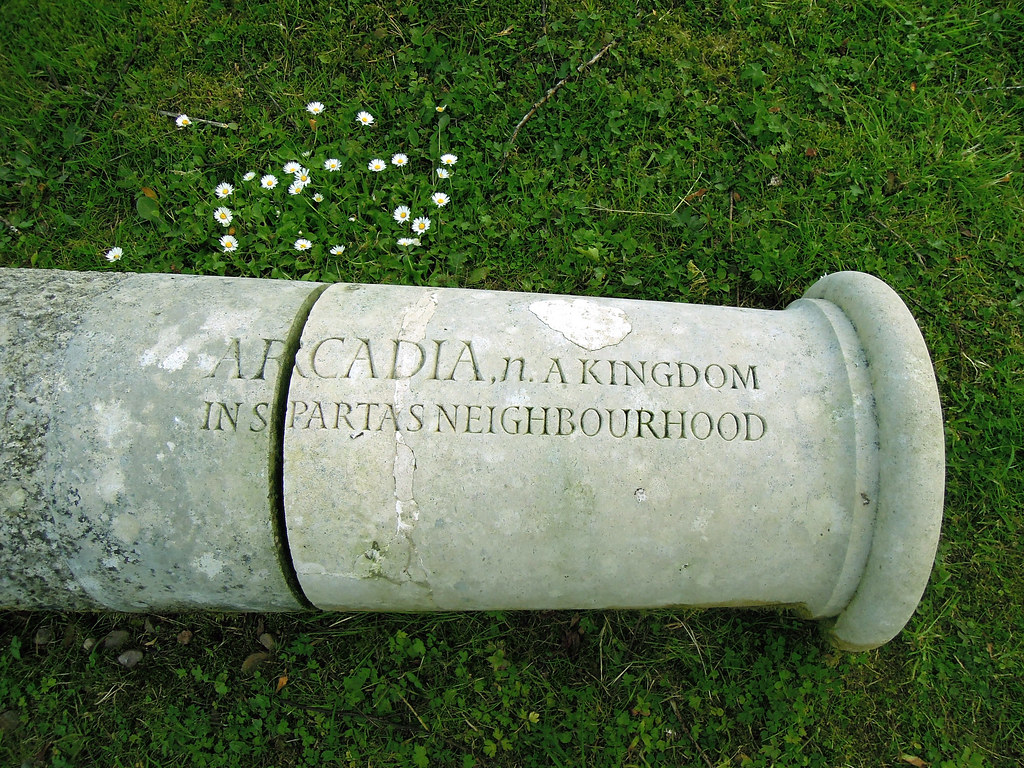
Ian Hamilton Finlay: Arcadia Column, Little Sparta: photo by Flora Laura Hammond, 3 July 2011
This countrie Arcadia among all the
prouinces of Greece,
hath euer beene had in singular reputation: partly for the sweetnesse
of
the ayre, and other natural benefites, but principally for the well
tempered
minds of the people, who (finding that the shining title of glorie so
much
affected by other nations, doth in deed helpe little to the happinesse
of life) are the onely people, which as by their Iustice and pruidence
geue neither cause nor hope to their neyghbours to annoy them, so are
they
not sturred with false praise to trouble others quiet, thinking it a
small
reward for the wasting of their owne liues in rauening, that their
posteritie
should long liue after saie, they had done so. Euen the Muses seeme to
approue their good determinatio[n], by chosing this countrie for their
chiefe repairing place, & by bestowing their perfections so largely
here, that the very shepheards haue their fancies lifted to so high
conceits,
as the learned of other nations are content both to borrow their names,
and imitate their cunning.
-- from The Countesse of Pembrokes Arcadia, written by Sir Philippe Sidnei, London 1590. Book One.
-- from The Countesse of Pembrokes Arcadia, written by Sir Philippe Sidnei, London 1590. Book One.



8 comments:
Tom, Were the first Acadians perhaps helots (peasant slaves owned by the state), fleeing militaristic Sparta? The Spartan elite organized the Crypteia, a sort of ur-gestapo, to terrorize the surrounding countryside. Once a year, as a military training exercise for future leaders, the rulers declared open season on the helots. Night-riding bands of young men of the ruling class were encouraged to search out and kill peasants for sport and pleasure. The rest of the year Sparta made do with ordinary fascism. Socio-pathology has ancient roots.
Didn't know of Finlay, but I've gone agoogling to learn more.
From "Et in Arcadia Ego"
...
In the crumbling lair
Of a robber baron
Sightseers picnic
Who carry no daggers.
I well might think myself
A humanist,
Could I manage not to see
How the autobahn
Thwarts the landscape
In godless Roman arrogance
...
After a day when I feel as though my brain and body were worked on with a winch, this incredibly cool and beautiful series restores me to the right place. Curtis
Sparta
That's where
goats clatter
accomplished
up the trunks
of the olives
The Little Sparta sculpture garden represents a 23-year collaboration between Ian Hamilton Finlay and his wife Sue Finlay.
The garden was begun in 1966, and was originally named Stonypath. Finlay chose the name "Little Sparta" in 1983. The name played on Edinburgh's nickname, the "Athens of the North", and on the historical rivalry between the Ancient Greek cities Athens and Sparta.
In an interview published in 2001 Finlay offered some reflections that may help make sense of the images and texts shown here.
"I think we have created a culture in which there is a complete absence of piety of any kind. And piety was always an ingredient of culture. But, when one uses the word ‘piety’ now, nobody knows what you mean by it. They think perhaps you mean some narrow Christian piety or something dogmatic. As a feeling, piety is almost completely absent from our culture — and I deplore this situation. And this is perhaps partly responsible for my classical inclination, which may have also arisen because, when I started working with letter cutters, most of them would actually do Roman-type letters. So, the act of writing texts that suit that type of letters led me to the classical. Also, I suppose, the idea of harmony is implicit in the classical and is implicit in me, but again it seems to be lost in our culture. Nobody speaks about it any more, and it seems to me to be very important. I suppose also I came to classicism through reading philosophy, but I suppose the interest was already in me or I wouldn’t have read philosophy.
"I don’t feel a distance between me and the classical. To me it represents quite a natural language. Other languages could be natural too, but I don’t feel outside the classical. It is clear that most people when they think about these things, their biggest experience is of a distance. I don’t have that experience. I have often said that just as the French revolution, for instance, understood itself through antiquity, I think our time can be understood through the French revolution. It is quite a natural process to use other times to understand your own time. It offers a kind of dramatic possibility or something like that. Of course our time does not try to understand itself at all, unfortunately, but times have always understood themselves through other times which provide a means of dramatising the issues of the present."
__
Finlay as always, brilliant and subversive. ... In his exhibition in Serpentine Gallery in London 40 years ago, some of his little sculpted oars for sale, on which he had carved "Odysseus was here"
I never got to see Little Sparta while living in the U.K. but Finlay was one of my influences in sculpting at art college much to the distaste of tutors who for some reason thought that the inclusion of words was not the done thing???!!
I was very outspoken in those days not interested in being a sausage in their factory Strange that my best work was the dissertation The arguments presented there stood up better to the abuse of tutors than did the visual art - personal bias dressed up as some notional objectivity
Thanks Tom
Bill, Colin, many thanks, and good to hear from those who have appreciated IHF.
"Personal bias dressed up as some notional objectivity", indeed -- that, aggravated by academic herd mentality -- has surely driven off more art than it has encouraged or embraced, in recent years.
Post a Comment